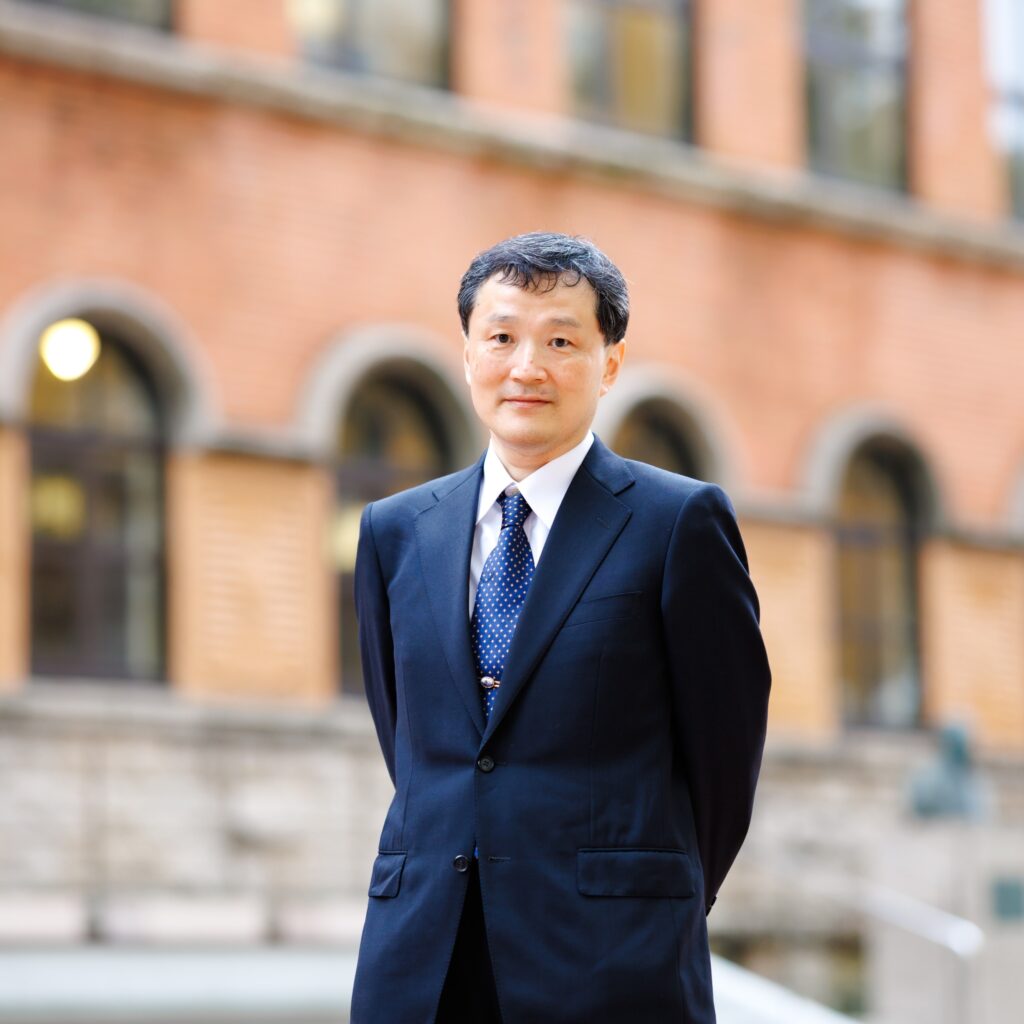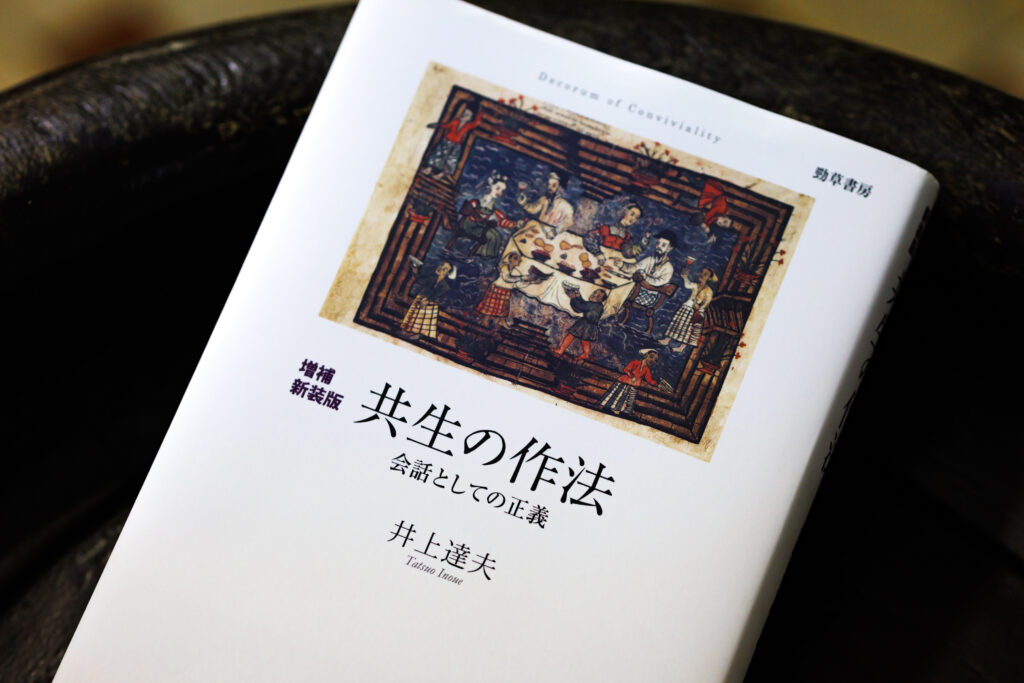
Professor Junichiro Okuda of the Faculty of Law specializes in the philosophy of law, which entails thinking about the very nature of law: how should laws be formulated? what is legal justice? In his research, he considers what it means for laws to be fair in medicine and bioethics.
My field of expertise is the philosophy of law. There are many types of law: constitutional law, civil law, criminal law, and procedural law. However, the philosophy of law is a field that seeks to investigate the ideal forms, the concepts, and the nature of law—those aspects that form the backdrop to the individual laws currently in force.
Even though individual laws may change over time, the philosophy of law—in other words, the approaches upon which these individual laws were based—does not change. It impels us to continually consider fundamental questions such as how should laws be formulated and implemented? and what is legal justice?
I first became interested in the philosophy of law after attending a philosophy of law lecture as a student. Originally, my aim was to become a practicing lawyer; however, as I studied law, I developed a sense of unease at learning about laws that were mutable. By chance, around the same time I was participating in a symposium on organ transplants, and it forced me to consider various medical and bioethical issues.
I learned that pregnant women who had been diagnosed as brain-dead are able to give birth—and this led me to question whether brain death could truly be regarded as death, and to consider how we should regard organ transplants that take place after a clinical diagnosis of death. Since that time, my research has primarily focused on legal issues related to medicine and bioethics.
One of the principal roles of law is to provide people with behavioral guidelines

Current laws related to medicine and bioethics are undeniably vague. There are no laws defining when and to what extent specific medical activities can be carried out, and when they can be withheld.
Let us take end-of-life care as an example: to what extent should patients be treated? when and how should care-givers verify the intentions of their patients? if the patient does not wish to receive life-prolonging treatment, but the family does, whose wishes should be given priority? when one of two opposing wishes is chosen, what is the judgment of the law?
By their very nature, laws tend to be inflexible—and this means they are not suited to being adapted to the circumstances of individual cases. Nevertheless, it is important to define the basic frameworks. We must not allow a state of affairs in which what is permitted in the case of one person is not permitted in the case of another.
Indeed, one of the principal roles of law is to provide people with behavioral guidelines.
Legal justice means treating diverse people in a fair manner
We give the name “justice” to the goals that we wish our laws to achieve. Legal justice means treating diverse people in a fair manner—it does not refer to subjective ethical viewpoints, or to ideals. Law is founded on the idea that everyone should receive equal treatment.
But in medicine, “justice” means ensuring that a patient can live to the end of their lives in as dignified a way as possible. It does not imply withholding treatment on a whim, or forcing people to continue living against their wishes—it requires, instead, that patients can fulfill their lives as they wish. We must establish laws that promote such a state of affairs.
Law and medicine are similar in that they seek to enable diverse people to choose diverse ways of living. But in practice, discussions between lawyers and care-givers are not straightforward, because they occupy different standpoints and have different approaches. It is our job as philosophers of law to lay the foundations for such discussions.
Going forward, I intend to peruse relevant theses and attend various conferences, to understand diverse facts and points of view, and to engage in necessary debates. One day, I plan to summarize the results of my research into a single volume and publish it—and as a researcher, I hope that this volume will encourage sophisticated discourse.
I intend to continue my research in good faith by being open to and accurately understanding diverse ways of thinking; and by abstaining from falsehood, incorporating my own ways of thinking, stating my beliefs, and listening to criticisms.
The book I recommend
“Kyosei no saho – kaiwa to shite no seigi” (Etiquette for living together – justice as conversation)
by Tatsuo Inoue, Keiso Shobo

This book was written by my supervisor. I came across it as a student, when I was questioning the meaning of studying existing laws. It asks critical questions about the laws that exist, and by what criteria we can judge their appropriateness. This book inspired me to begin researching the foundations upon which our laws are based.
-
Junichiro Okuda
- Professor
Department of Law
Faculty of Law
- Professor
-
Professor Junichiro Okuda graduated from the Faculty of Law, The University of Tokyo, and received his M.A. in law from the university’s Graduate School for Law and Politics; he studied as a postdoctoral fellow under the Japan Society for the Promotion of Science’s Research Fellowships for Young Scientists program. After working as an assistant professor then associate professor at the Department of Law, Faculty of Law, Sophia University, Okuda was appointed to his current post in April 2009.
- Department of Law
Interviewed: October 2022